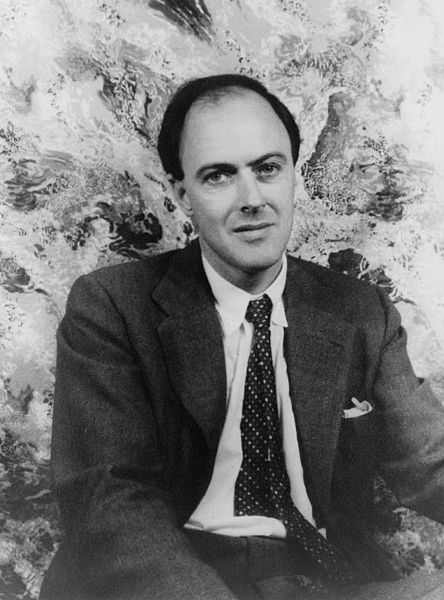The Long Shadow Cast by Lily Bart’s Cosmetic Morality

Lily Bart is nothing if not a master of self-denial, supremely talented at self-deception and shameless rationalization, which inevitably bleeds into her distinctive brand of morality. At the beginning of House of Mirth, Wharton is careful to clarify that Lily is not “scrupulous” in the traditional sense, but that she maintains the illusion of moral purity by ruthlessly repressing any and all ugly, unappealing impulses.
“[Lily] was always scrupulous about keeping up appearances to herself. Her personal fastidiousness had a moral equivalent, and when she made a tour of inspection in her own mind there were certain closed doors she did not open.”
This moral fastidiousness can be read as a product of the Jungian shadow self; Jung argued in “Aion: Researches into the Phenomenology of the Self” that a “shadow” perpetually threatens to besiege the human mind. He conceptualized the shadow aspect of the self as consisting of the dark, abhorrent thoughts and emotions that disturb the ego and adulterate the conception of the self, which every person compartmentalizes to some extent. When these thoughts and feelings are safely tucked away in the unconscious, they take on a life of their own. They lurk in the recesses of the mind, manifesting in actions that are irreconcilable with the conscious self.
In House of Mirth, Lily Bart’s increasingly autonomous shadow self takes the form of the Furies from Eumenides, vengeful spirits who stalk and torment Orestes as retribution for an act of matricide:
“[Lily] had once picked up, in a house where she was staying, a translation of the Eumenides, and her imagination had been seized by the high terror of the scene where Orestes, in the cave of the oracle, finds his implacable huntresses asleep, and snatches an hour’s repose. Yes, the Furies might sometimes sleep, but they were there, always there in the dark corners, and now they were awake and the iron clang of their wings was in her brain.”
The Furies aim to punish the wicked and terrorize the guilty, so they can easily be interpreted as a simple metaphor for Lily’s exceptionally ireful conscience. But Wharton’s description of the Furies as lying dormant in “dark corners” provides support for a Jungian reading, as it evokes the chambers of Lily’s mind that are left unexplored. Lily’s ego finds peace when her repression techniques are particularly effective, and the Furies are put to bed, but at some point the Furies reawaken, and the rippling effects of her unpalatable impulses come back to haunt her time and time again.
Further, Lily reflects later in the novel that the Furies have “taken the shape of Bertha Dorset,” strengthening the reading of the Furies as the Jungian shadow self. Bertha is not a virtuous person; in fact, she “delights in making other people miserable,” so it would make little sense for Lily to associate her with a traditional conscience. But an overgrown shadow self, Jung argues, is extremely prone to projection, and induces the ego to perceive a moral deficiency in another person that the unconscious attributes to the self. Bertha may very well possess the depraved qualities Lily perceives, but Bertha is certainly not the person Lily is trying to escape throughout the novel, and especially when she puts herself to sleep.
Wharton’s text famously leaves ambiguous whether Lily accidentally overdoses or commits suicide. In the context of a Jungian interpretation, her actions lie somewhere in between, and constitute an unconsciously motivated euthanasia. Consciously, she only desires sleep, but unconsciously, she longs for freedom from the evils she fears are lurking in the “dark corners of her brain.”
“She did not, in truth, consider the question very closely—the physical craving for sleep was her only sustained sensation. Her mind shrank from the glare of thought as instinctively as eyes contract in a blaze of light—darkness, darkness was what she must have at any cost.”
Like Orestes, Lily is desperately seeking repose, but from what, or whom, exactly? At this point in the novel, Lily’s troubles have been rectified, at least superficially. She is still impoverished, but is no longer plagued by the threat of financial ruin, as she finally has the means to pay off her debts to Gus Trenor. And after painfully struggling with the looming prospect of moral corruption, she ostensibly chooses her better angels by burning Bertha Dorset’s incriminating letters.
But even after she’s escaped the externally manifested Furies, she cannot escape the dark impulses beating down the “closed doors she did not open.” In their final meeting, she tells Selden his faith in her goodness has been a “light in the darkness,” and later reflects that she achieved a “momentary exaltation of the spirit” by burning the letters and confessing her love for him. But she is haunted by fears of descending back into moral weakness, of “countless hands of habit dragging her back into some fresh compromise with fate.” She ends her life in an attempt to quit while she’s ahead, so she can continue to “keep up appearances to herself” and effectively eliminate the need to integrate any of her flaws into her consciousness.
Jung referred to the shadow as a “moral problem that challenges the whole ego-personality. The presence of an autonomous shadow self requires exhaustive self-examination, and the ability to recogniz[e] the dark aspects of the personality as present and real,” lest the ego risks complete and utter self-destruction. When she overdoses on sleep medication, she is choosing the dark rather than face the “glare” of her own thoughts. She reconciles herself not with her own darkness, but with the undisturbed darkness of self-annihilation.


